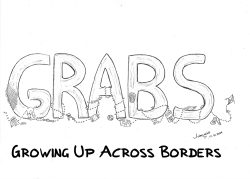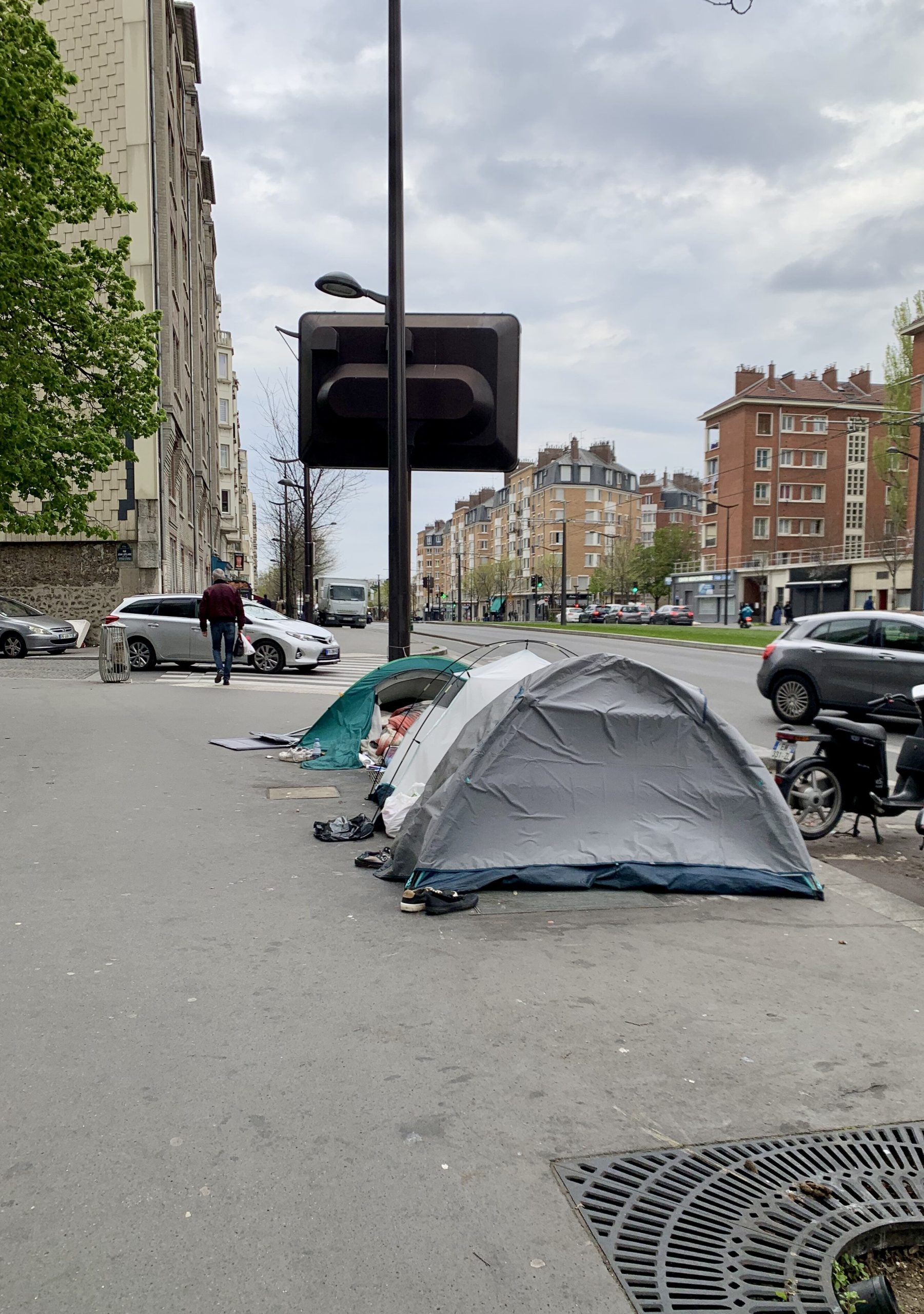This piece is based on reflections drawn from fieldwork conducted in France in 2022, while researching survival strategies. During this research, I interviewed various actors, including representatives from NGOs and civil society organizations working with asylum seekers and refugees, volunteers in solidarity movements, social and health workers, as well as forced migrants themselves.
I am waiting in the living room to meet one of my interviewees. The cat is laying down on the table peacefully enjoying the mountain of papers spread in this room that once was a dining area. Mrs Aude explains to me that she will only be available to talk later, as she is meeting with a young migrant who needs her help in filling in forms for the French immigration services. He is applying for refugee status.
The doorbell rings. He arrives accompanied by a friend. Mrs Aude explains to him some of the procedures, what is still necessary to complete the application. He, very shy, in his early twenties, just shakes his head as a sign of comprehension. She gives him money, and he goes away, as did his friend.
This house is not an ordinary house. At least, it is much more public than others. Day and night people come and go, all in the hope of receiving some form of support with the asylum system in France. Mrs. Aude is part of a group of volunteers who assist migrants. They offer various services, such as help with paperwork, language development, financial aid, and housing.
Many migrants feel safe in Mrs. Aude’s home. Her efforts provide solidarity in a context of restrictive migration policies, limited state welfare for certain populations1, and rising xenophobia. This makes her work an example of grassroots initiatives that can foster social change and challenge state exclusionary practices.
However, the reality is that not every solidarity space is a safe place. These initiatives too might be the site of violence for those seeking help.
The experience of this young and shy migrant is one example of this contradiction at the heart of some solidarity movements. He was sexually and psychologically abused by a man who gave him shelter after he had been living in the streets without any state support.
‘From the very first evening, he asked the young Afghan to perform oral sex on him (…) he managed to convince the boy that it was a fair deal’. Mrs Aude
The situation of this young man is not an isolated case. A 2020 report by France Terre d’asile revealed that only 48% of asylum seekers received accommodation within the French asylum reception system. For many, living on the streets becomes the only option. Without access to housing or resources, they are exposed to extreme precarity, making them vulnerable to various forms of abuse and violence. The absence of adequate state support further heightens their risks, including exposure to sexual violence.
As emotional ties develop between forced migrants and volunteers from various fields, relationships may take the form of friendships or even romantic attachments. These emotional connections can alter how different forms of abuse are perceived. In other contexts, such abuses might have been clearly identified and reported by the victims. However, in these new dynamics, accountability often becomes almost nonexistent. The lack of regulation and responsabilization can create opportunities for further and even new types of violence to occur.
According to Mrs Aude, they young man for example did not even consider reporting the abuses he suffered to the police : ‘ There was an emotional bond between the two of them. And because, beyond that (the abuse), he (the older man) had taken him on vacation, he took him to restaurants on Saturdays, to visit the Châteaux de la Loire.’
Volunteers in that sense might not only profit from the vulnerable conditions of forced migrants but mobilize intimacy and emotions within these relationships, as if solidarity could not also conceal or give rise to violence. But one should know: solidarity may also (re)produce multiple forms of abuse. And when we create vulnerability with more and more restrictive and exclusionary policies and practices, we also create the space for violence.

